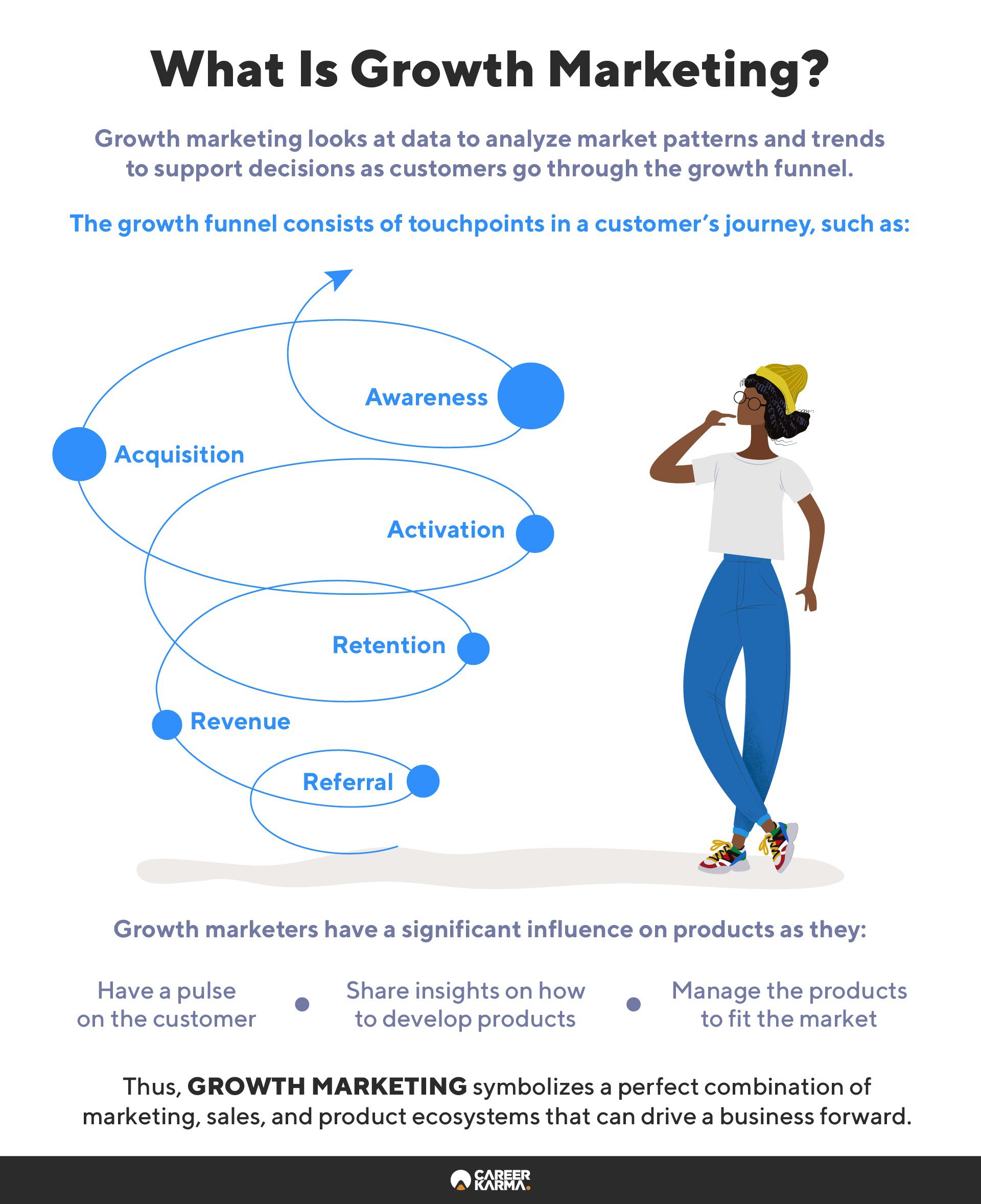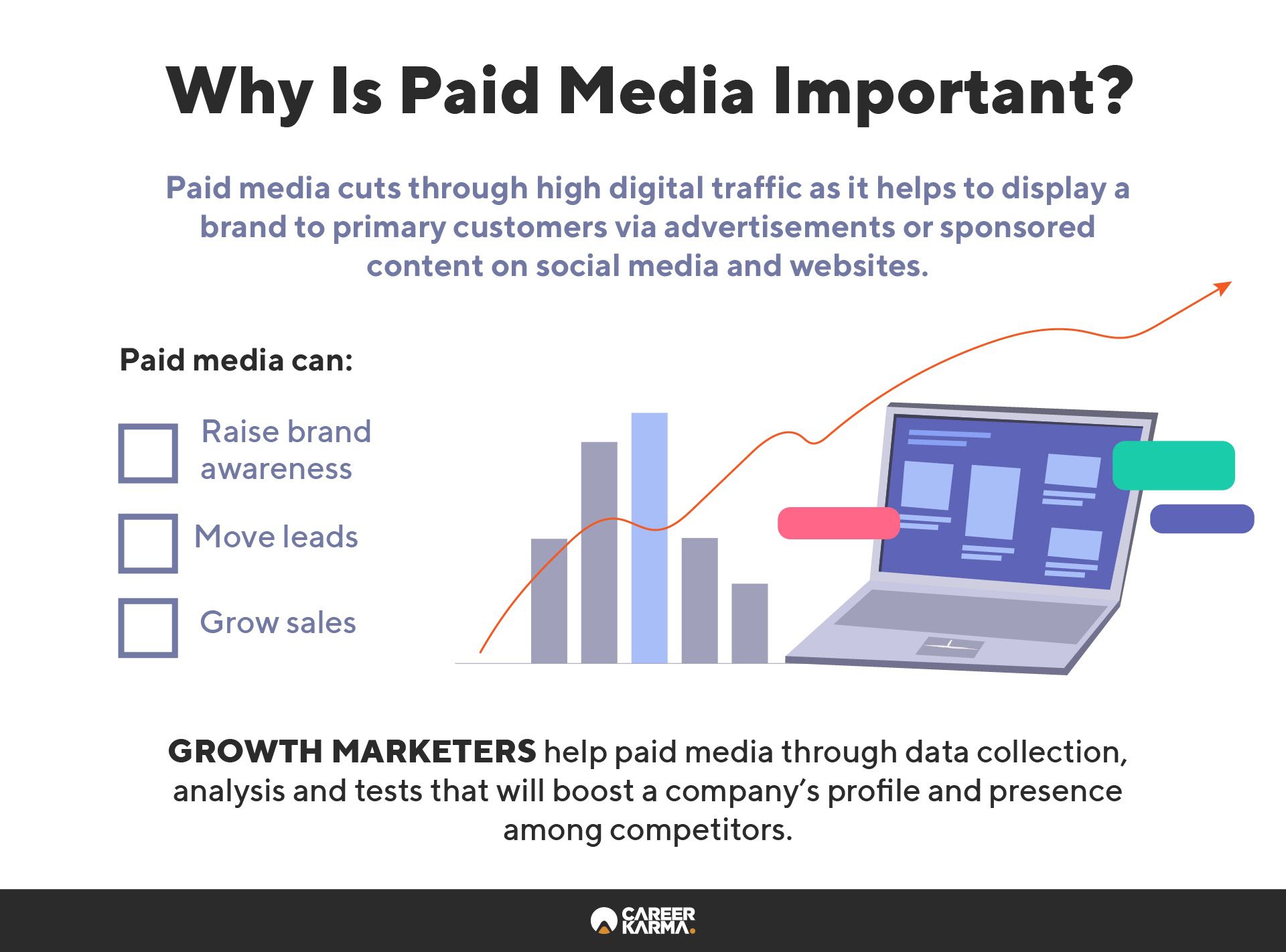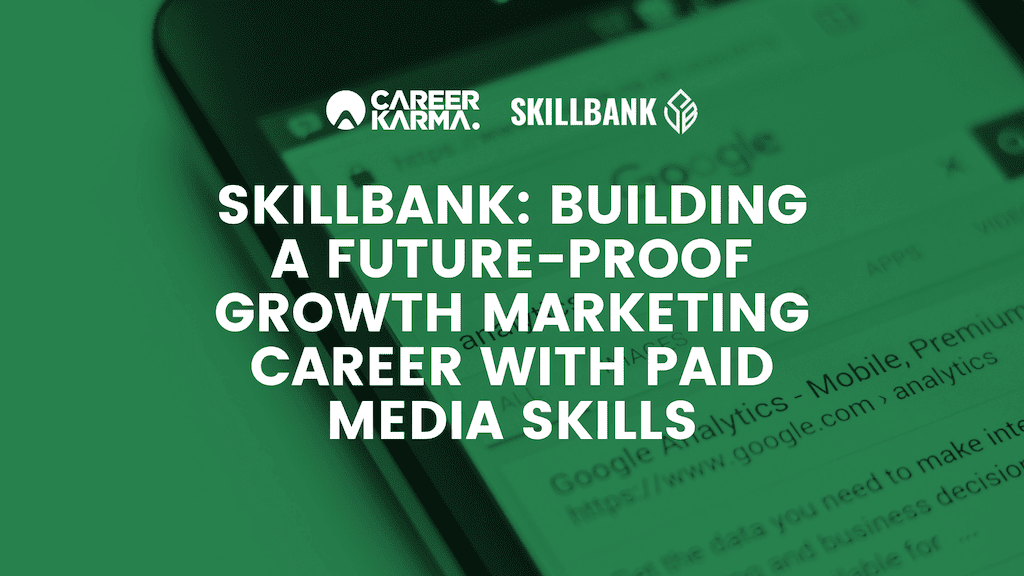The term “digital marketing” covers multiple facets, from search engine optimization (SEO) and content marketing to mobile marketing. As most enterprises and startups go digital today, it has become more challenging for businesses to own a slice of the market, let alone capture and retain consumer attention in a saturated space.
With this in mind, marketing agencies and other businesses are eager to hire talents who possess the relevant technical know-how to cruise through the ever-changing tide of digital marketing.
This is what gave rise to SkillBank, which wanted to bridge the gap between talents and growth marketing and paid media.
With its 15-week hands-on training program, SkillBank bridges the gap between motivated people and the exciting career opportunities in digital marketing.
Apply to SkillBank today.What Is SkillBank?
SkillBank is a digital marketing bootcamp where fellows can acquire sought-after marketing skills in paid media and growth marketing. Marketing may seem an overwhelming field to get into, especially for those with no formal marketing background. But Mehak Vohra, founder and CEO of SkillBank, crafted the program for people starting from scratch.
Mehak had her fair share of trials when she felt lost in her computer science degree program and eventually dropped out of college. She wanted to be self-reliant, but taking the traditional path to a career she was not interested in did not sit well with her. So, she created her own.
Having talked to venture capitalists and startup entrepreneurs, she learned about their frustration in finding skilled marketing talents. Mehak took this as a clear opportunity to create a program that would equip anyone with the relevant marketing skills and, in turn, fulfill the needs of the industry.
Is SkillBank for You?
SkillBank doesn’t discriminate. Whether you’re 18 or 60, you can start your training at the bootcamp. Many SkillBank fellows are people who are exploring their options, yet are career-hungry. Some fellows come with degrees in different disciplines, while others understand how social media and content creation work.
Nevertheless, the ideal SkillBank fellow features those who love doing something creative whilst being analytical and impactful. If this sounds like what you aspire to, you might be a perfect fit for growth marketing.
Why Learn Growth Marketing?

Traditional marketing focuses most of its efforts on creating awareness and getting leads, which are then passed on to the sales team or accounts team to further nurture and convert them into revenue. By comparison, growth marketing is an evolved role that heavily uses data to analyze market patterns and trends to make decisions as the customers go through the growth funnel.
The growth funnel consists of different touchpoints in a customer’s journey, including awareness, acquisition, activation, retention, revenue, and referral. The funnel demonstrates how every successful marketing lead becomes an advocate, eventually creating a community of loyal customers.
That said, growth marketers also have a significant influence on products. Since they have the pulse on the customers, they give relevant insights on how to develop and manage the products to fit the market.
So, in essence, growth marketing is finding the perfect combination between marketing, sales, and product ecosystems to drive the business forward and upwards.
This leads us to the next question: how does one achieve growth in digital marketing?
Among the tried-and-tested tactics is paid media, which is a way to cut through high digital traffic and display your brand to primary customers via advertisements or sponsored content on social media platforms and websites. Whether you want to increase brand awareness, move leads through their journey, or grow your sales, these are all possible with paid media.
But creating and implementing digital media campaigns go beyond clicking the boost button. The decisions you make in paid media will ultimately rely on tests or experiments done by growth marketers and the data they gather. It’s akin to strategically trying all paths to success until you find the correct route for the company.
The Rise of Paid Media in Digital Marketing

Paid media and growth marketing are not new concepts. Even before the coronavirus pandemic, businesses were rapidly digitizing transactions and operations. These factors catapulted paid media and growth marketing within marketing strategies.
According to Hootsuite, the advertising audience of Facebook increased by 31 percent in 2020 to 2.1 billion, and a growth of 4.9 percent in Facebook ad revenue. Google continues to be the key internet search engine boasting a 92 percent market share.
How do FB and Google ads affect businesses? Retail, apparel, beauty, technology, and fitness companies experienced an increase of up to 1.6 percent in Facebook ads click-through rate (CTR). For comparison, the average Facebook CTR is 0.9 percent across all industries.
The conversion rate also increased, with the mentioned industries racking up to 14.3 percent versus the 9.2 percent Facebook average conversion rate. Google scores a 5.6 percent average CTR and 4.4 percent average conversion rate across all industries.
Marketing is a vital field yet often overlooked by C-suites due to its complexity. Often, the results are indirect and are difficult to quantify beyond reach and engagement. But with paid media, the data speak for themselves. You know who is clicking on your ads, their location, and if you are hitting your goals. As a marketer, analyzing this information can turn into actionable strategies to further your business.
Fortunately, the clamor for growth marketing and paid media also translates to a higher demand for marketing talents with this skill set. According to LinkedIn, the most in-demand positions in marketing include digital marketing specialists, digital account executives, and social media managers. Alongside these positions are the top skills required to qualify, like social media marketing, paid search strategy, and search engine marketing.
The United States Bureau of Labor and Statistics projects a 22 percent increase for marketing specialists and marketing research analysts by 2030. Advertising, promotions, and marketing managers will also expect a 10 percent job increase in the marketplace.
How SkillBank Makes You an In-Demand Marketing Professional
After four years in the business and with first-hand insight from several agencies, Mehak notes that most companies need entry-level marketers with solid technical skills. This relates to someone who knows how to collect and analyze data, improve performance indicators or metrics, acquire and retain customers or users, and help make strategic decisions backed by data.
While some companies offer internal training programs covering paid and organic media, not every business has the means to do this. SkillBank addresses these concerns in its 15-week paid media course to produce marketing professionals that companies seek.
The course covers fundamental lessons like various marketing models, which help provide a deeper understanding of the flow of interaction between brands and consumers. You will learn how to create and optimize landing pages, strategize integrated marketing campaigns based on data, and audit marketing efforts in conjunction with running ads on Facebook and Google.
SkillBank fellows are also exposed to the ins and outs of business tools, including Facebook Business, Facebook Ad Manager, Google Search ads, and Google Analytics. These tools help to launch, track, and analyze digital campaigns.
Fellows who complete the paid media course receive certification from Facebook and Google. They also get to undergo an internship with the help of the bootcamp before immersing themselves in a full-time position.
What Career Paths Can You Take After SkillBank?
According to PayScale, a social media coordinator earns an average of $40,854 a year. Marketing specialists take home a higher salary at $51,749 annually, while marketing managers can expect $66,802 yearly pay.
On the flip side, marketing professionals with relevant skills in paid media and growth marketing earn more. The salary gap is significant, even for entry-level jobs. A growth hacker earns $70,000 a year, and growth marketing managers can take home an average annual salary of $127,765. From these data, we can infer that being a multi-skilled growth marketing specialist adds more value to a company, hence their higher income.
Growth hackers are responsible for:
- Identifying the best channels to reach KPIs and revenue;
- Conducting experiments and A/B tests and analyzing data (conversion rate, customer feedback, CTR, etc.) before implementing strategies;
- Boost brand awareness and engagement on a bigger scale;
- Work with other departments to determine growth potentials.
SkillBank instills the right core skills to build a strong foundation. Having a solid skillset enables marketers to rise above challenges despite the notoriously fickle trends in digital marketing. They also open your path to more career opportunities. Other jobs you can explore are paid media specialist, digital strategist, and paid search manager.
Level Up in Marketing with SkillBank
In a study done by CMO Survey, companies raised their digital marketing spending by over 15 percent in 2020. About 72 percent of those surveyed said marketing is now a top priority in their company.
As marketing finally earns a seat at the big table, rising pressure and expectations from key stakeholders are inevitable. All things considered, marketing has turned into a sink-or-swim industry. Now, having growth marketing and paid media skills is non-negotiable if you want to succeed.
Luckily, you can level up with SkillBank and fill the skills gap to help propel you to a lucrative career. Start your journey to your marketing dream job with SkillBank.
About us: Career Karma is a platform designed to help job seekers find, research, and connect with job training programs to advance their careers. Learn about the CK publication.




